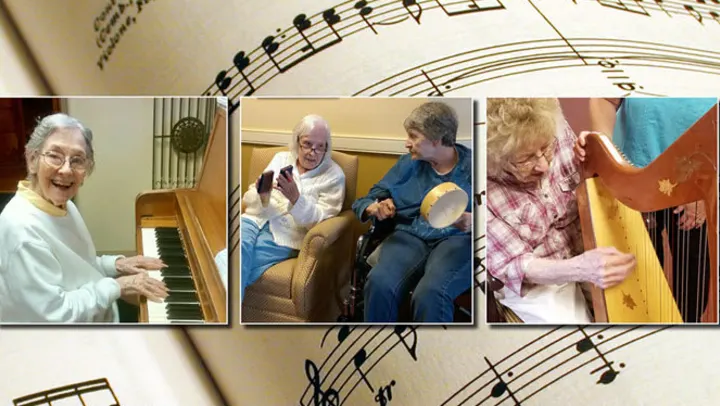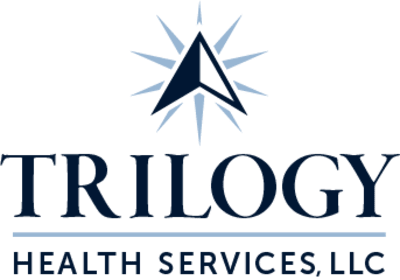
By Team Trilogy
We’ve all been there- we’re busy at work, running errands, or around the house when a song comes on and BAM! we’re suddenly someplace else. We’re in a darkened school gymnasium, dressed in our best and trying not to show how nervous we are to finally be dancing with our crush. We’re in shorts and suntanned, singing at the top of our lungs from the backseat as the wind whips through our hair. We’re walking down the aisle. We’re walking someone else down the aisle. We’re smiling. We’re happy.
It’s hard to overestimate the power of music. Music can transport us to a different time or place. It can reunite us with cherished memories and fill us with the feelings we had long ago. For those living with Alzheimer’s or another form of dementia, music’s ability to encourage reminiscence can have even more dramatic, positive effects.
During an Alzheimer’s or dementia journey, short-term memories become lost over time, while long-term memories remain intact. Music can serve as a bridge to connect those with memory loss to long-term memories that fill them with joy. This is true even in those for whom verbal communication has become difficult. We often see residents in memory care settings singing along to their favorite “golden oldies” or hymns.
Music can also inspire someone to share a story. It’s not uncommon for our residents to be so moved by a tune that they are suddenly telling the story of a courtship, a wedding dance, a church social, or another special moment that they’ve tied to the music. Such experiences are priceless, as they help those with memory challenges remember times that may have otherwise been forgotten. Music can also provide a voice to those who are ordinarily quiet. After all, what cannot be said that has not been said in a song?
One of our amazing Life Enrichment Associates once told us, “I’ve seen it many times. Wherever God put music inside, it rarely leaves.” We believe that music must play an important part in the lives of those who live in our memory care neighborhoods, so we encourage our staff members to offer musical experiences to our residents every day. This could mean singing along to a past hit, enjoying the sounds of a rhythm band or popular musical, or interpreting a song through movement.
Music can also serve as a source of comfort for those who are in the very end stages of an Alzheimer’s or dementia journey. The connection with something familiar can be soothing to those who are struggling to find peace during a difficult time.
The benefits of music are so profound in part because we do not just listen to music, we experience it. From our ears to our hands, our feet, and our hearts, music moves us. That’s why music will always have a special place at every Trilogy campus.
If you are searching for compassionate memory care services for your loved one, visit our locations page to find a campus near you!

